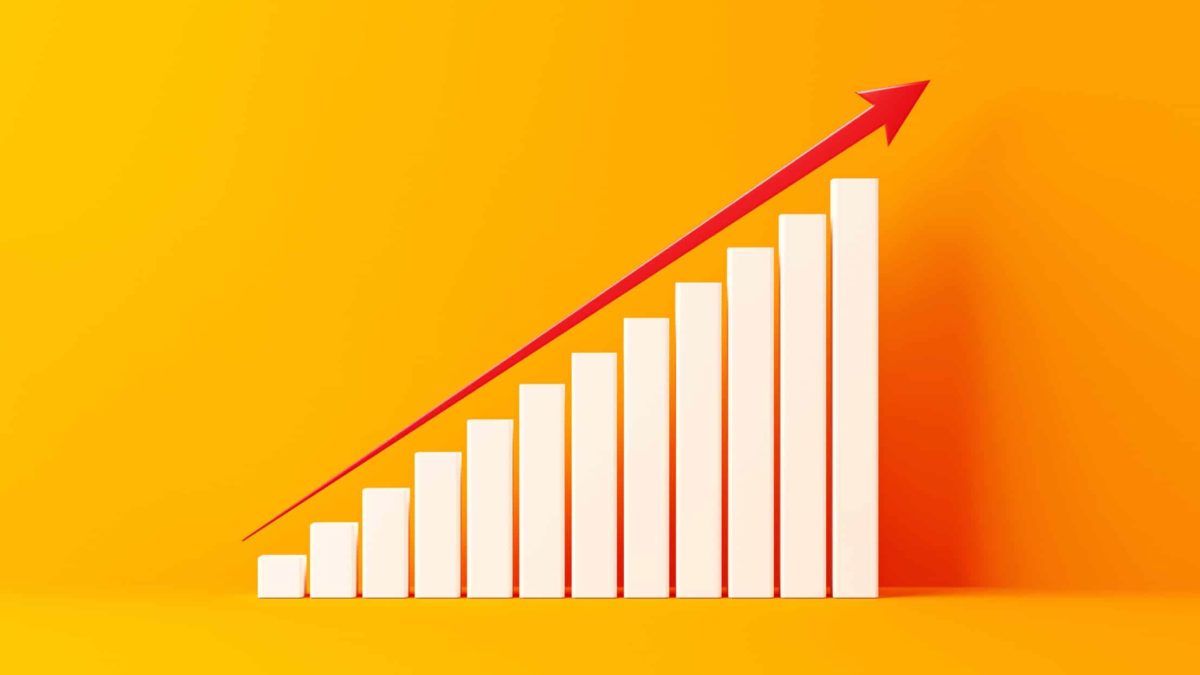This article was originally published on Fool.com. All figures quoted in US dollars unless otherwise stated.
It's not an easy time to be a faint-of-heart investor. With the market down by more than 22% this year, we're falling deeper into the bear market, and growth stocks are leading the descent.
Rather than panic selling some of your growth stocks or refusing to consider them altogether, it's probably in your best interest to be a net buyer, even if the market continues to drop. That idea might sound crazy, but be sure to consider these three reasons to keep investing before writing it off.
1. The bear market can't go on forever
The market is always changing, and thus relatively short-term downward trends eventually reverse. On average, bear markets last for a year, give or take a month or so. There's no use in trying to time the market by predicting the very bottom of the bear market and investing at that precise moment, as it's highly unlikely that you'll nail the entry point, and you might lose out on growth while waiting on the sidelines for the right time to roll around. So what should you do with the information that bear markets aren't permanent?
Continuing to buy growth stocks on the way down is one move that could pay off, and it might even take less time than you'd expect. For example, consider genetics-testing business 23andMe (NASDAQ: ME). Its shares are down by nearly 65% in the past 12 months, underperforming the market significantly. But if you'd bought shares three months ago, you'd be sitting on a nice gain of around 24.5%, driven by better-than-anticipated revenue growth in its consumer genetic information subscription segment during its fiscal Q1 of 2023.
That doesn't necessarily mean it's the right move for you specifically to start buying shares of 23andMe today; after all, one quarter's results don't mean much of anything in the long term. The point is that if you buy shares during the bear market, you could be setting yourself up for the possibility of a significant gain eventually. By contrast, keeping your cash out of growth stocks ensures that you won't get the advantage of any rebounds in their prices, never mind their long-term potential to appreciate in value.
2. Buying now means getting more bang for your buck
The second reason you shouldn't stop buying growth stocks right now is that doing so would cause you to miss out on the increasingly attractive valuations on the market right now. In 23andMe's case, its price-to-sales (P/S) multiple was 10.4 at the end of 2021, whereas it's now five.
That means if you bought one share of the stock today, you'd be getting more than twice as much revenue compared to buying a share back then. Note that getting more value per dollar compared to before doesn't mean you're necessarily getting a good value, as valuations have shifted across the market in that period.
Still, if you're bullish on the company and you want to establish a position to hold for the long term, lower valuations are great news for you. They mean that you don't need to spend as much money to buy a portion of control of a business' earning power, and if you're actually getting a bargain, you might even be setting yourself up for outperformance once the market notices the cheapness.
3. Recessions and inflation aren't an equal threat to every growth stock
Not all growth stocks are going to be hurt by inflation, nor are they going to be necessarily hurt by an economic recession. And while some will experience more difficulty raising capital, many won't. So if you can find the businesses that aren't very affected by the headwinds most investors are focusing on right now, you'll be setting yourself up for success.
In 23andMe's case, some of its top line might be negatively affected as part of its business model is getting consumers to sequence their genomes with the company's kit and then offering them frequently updated profiles on some of their genetic risk factors. But it also does lead generation for drug development programs as a collaborator, and its partners are some of the most powerful pharmaceutical companies in the world, like GSK.
Even if consumers can't pay for luxuries like genome sequencing services, investors can bet on seeing giants like GSK continue to advance the clinical-stage program that it's working on with 23andMe. What's more, it'll probably continue to fund development of pre-clinical programs it thinks might be worthwhile down the line. And regardless of the economy, other pharmas might try to copy GSK's lead by working with 23andMe.
So even if the stock isn't a shoo-in for beating the market right now, it isn't under intense pressure, and it'll almost certainly survive the macroeconomic whirlwind. In other words, if you were on board with buying its shares before 2022, you probably still should be -- and that's a lesson you can easily apply to many other growth stocks, especially those within the biopharma sector.
This article was originally published on Fool.com. All figures quoted in US dollars unless otherwise stated.









